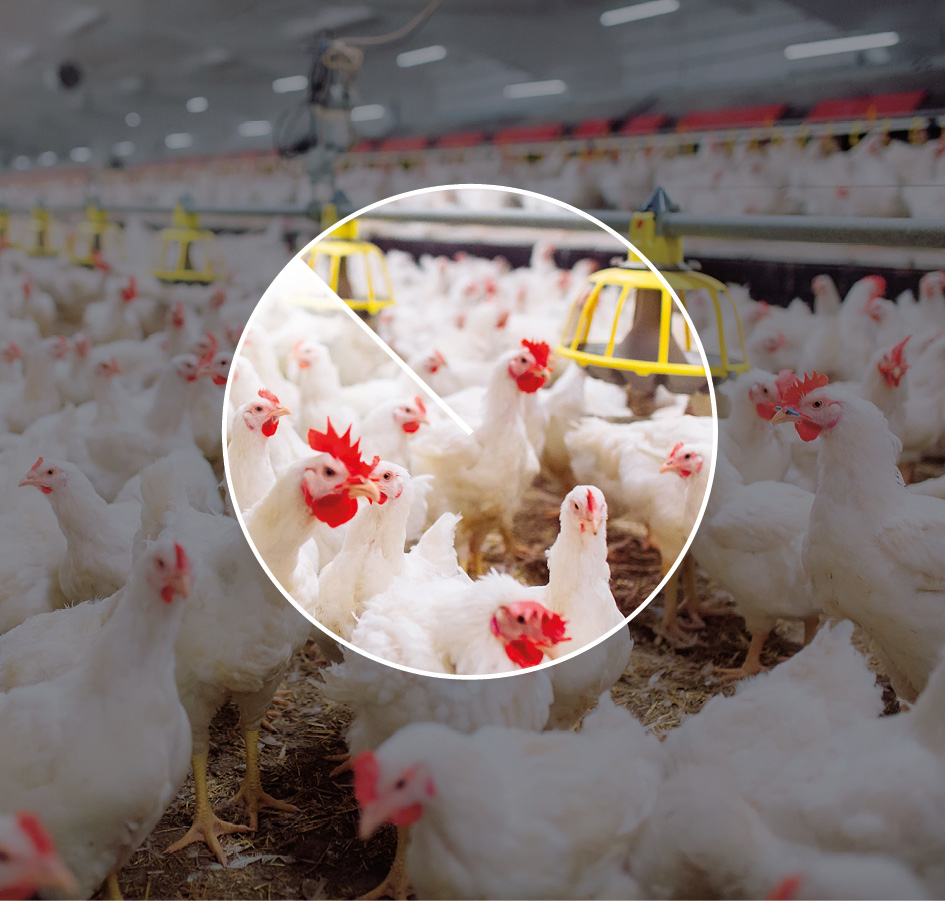9 Other particularly serious violations of fundamental ethical norms

Section 4 of the guidelines states that: “Companies may be excluded or placed under observation if there is an unacceptable risk that the company contributes to or is responsible for: […]
- h. otherparticularlyseriousviolations of fundamental ethical norms”
In the past year, the number of companies being assessed in relation to the criterion for other serious norm violations increased. The criterion may be applied to cases that do not fit in any of the other criteria. In 2023, the Council focused particularly on animal welfare violations and companies’ contributions to Russia’s war in Ukraine. The only exclusion under this criterion in 2023 related to resource extraction in Western Sahara at the behest of the Moroccan authorities. This is an issue that the Council has been following for many years, and several companies have been excluded on this basis. These cases rest on Morocco having no legal sovereignty over Western Sahara’s natural resources. The Council has attached importance to the fact that the activity has not been substantiated as being in accordance with the wishes and interests of Western Sahara’s people, and that the activity helps to maintain an unclear situation in the area. In 2023, Delek Group Ltd was excluded because the company had signed an agreement with Moroccan authorities to engage in petroleum prospecting off the Western Saharan coast.
PT Semen Indonesia (Persero) Tbk was placed under observation in 2023, following a recommendation issued by the Council in 2022. The company is Indonesia’s largest producer of cement and extracts limestone in the Maros-Pangkep area of South Sulawesi. The company was placed under observation due to the risk of damage to irreplaceable prehistoric cultural heritage sites, including 40,000-year-old cave paintings. The Council will assess whether the measures the company implements help to reduce the risk of harm to these cultural heritage sites. Even though the company has taken positive steps to protect the sites, the Council considers that there is still a way to go with respect to identifying risks and developing and implementing a management plan to reduce the risk of damage to the cultural heritage sites. The Council will therefore continue its observation of the company.
9.1 Animal welfare
Through the Ethics Commission’s report and the Norwegian parliament’s debate on the subsequent Pension Fund Report, it was emphasised in 2021 that serious animal welfare violations fall within the scope of the Ethical Guidelines for the GPFG. While animal welfare was not introduced as a separate criterion, this type of norm violation was included in the umbrella criterion “other serious violations of fundamental ethical norms”.
The Ethics Commission on animal welfare:
That animals are entitled to be treated without unnecessary stresses and strains enjoys broad support in Norway and internationally. Section 3 of the Animal Welfare Act, which was introduced in 2010, states: “Animals have an intrinsic value which is irrespective of the usable value they may have for man. Animals shall be treated well and be protected from danger of unnecessary stress and strains.” Correspondingly, the EU’s Lisbon Treaty (2009) establishes that EU member states have a duty to take account of individual animals’ welfare needs. Along with 177 other states, Norway is a member of the World Organization for Animal Health (OIE), which is a standard-setting organisation within the framework of the WTO, among others. The OIE has adopted animal welfare standards that must be considered global standards.
In its proceedings concerning the report, the Norwegian parliament (Storting) endorsed the Commission’s assessments and expressed the expectation that the Council on Ethics would address norm violations relating to animal rights. The Storting explicitly endorsed the statement that “animals are entitled to be treated without unnecessary stresses or strains”.
The Council has begun working systematically to create a framework for how companies that are responsible for serious animal welfare violations can be identified and assessed. The Council takes the Norwegian Animal Welfare Act and similar international legislation as its starting point. Although the legislation varies from country to country, the Council’s position is that activities permitted in Norway shall not be encompassed. The purpose of the Animal Welfare Act is to promote good animal welfare and respect for animals. This applies to their treatment and all factors influencing animal welfare. The key factor is that animals must be treated well and protected from the danger of unnecessary stresses and strains. Animals must also be given the opportunity to display their natural behaviour. In practice, the greatest emphasis is placed on negative liberty. This means that protection against external stresses, such as infection from outside and control over the physical surroundings, is weighted more heavily than animals’ ability to engage in normal behaviour among other members of their species.
With respect to animal welfare cases as well, the Council considers companies on the basis of the seriousness of the violation and the closeness of their involvement in it, as well as the likelihood of the company’s practice continuing in the future. This means, for example, that a significant number of individual animals must be subjected to cruel treatment before the Council engages in the case. In the first instance, the Council will look at cases where GPFG-invested companies systematically subject a large number of individual animals to serious welfare violations in their own operations, and where it does not appear as though the company has tangible and credible plans to improve the conditions concerned.